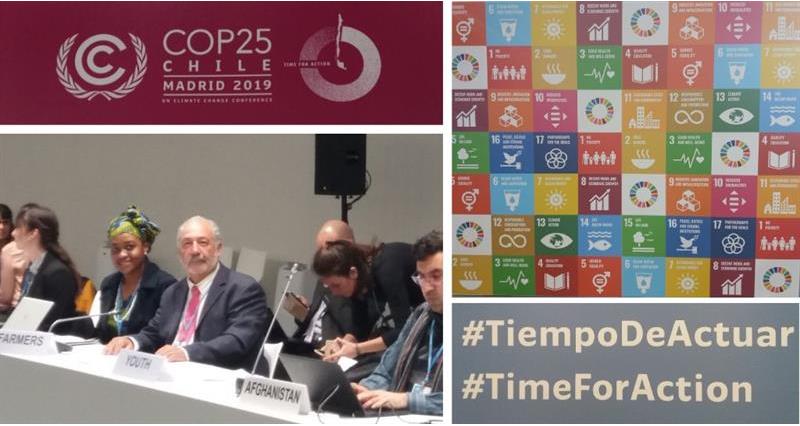Governments recognised the 'full potential of increased productivity in contributing to food security, adaptation and adaptation co-benefits as well as enhancing carbon sinks' and that the continued involvement of financing entities is important to ensuring much more action on the ground.
In the final congratulatory session full of tired negotiators, the NFU spoke on behalf of the Constituency to signal farmers’ continuing support and expertise available to the process. A happy (but weary) agriculture family indeed.
This came on the back of detailed technical discussions on how improvements in nutrient use and manure management can help to build sustainable and resilient agricultural systems.
The Constituency was represented by Brenda, a young farmer from South Africa, and Francisco, a farmer from Chile. Brenda farms over 1,000 hectares across two enterprises - livestock (cattle, goats, pigs and game) and crops (grains and vegetables). The manure from the cattle is a valuable source of nutrients for the crops and it’s only after comprehensive soil testing that Brenda adds inorganic fertiliser. Francisco has a small organic mixed farm of sheep and walnuts. He composts the manure to make nutrients more available to the tree crop. Despite their different circumstances, both farmers spoke positively about the value of livestock manure, of nutrient planning, management and testing, and the importance of farm-specific advice.
What next?
The entirety of the Koronivia work is due to report at the COP next year in Glasgow.
This is an opportunity for the UK government to work with the NFU to showcase the best of British farming.
More from NFUonline:
